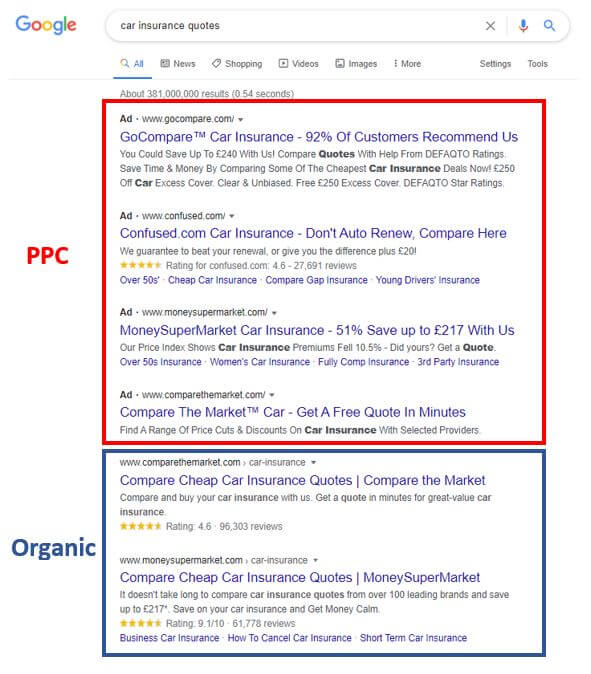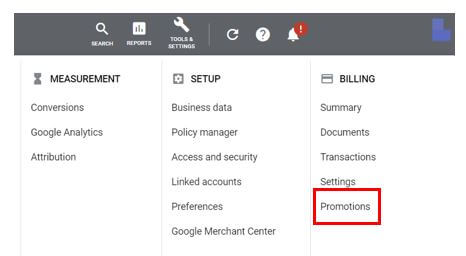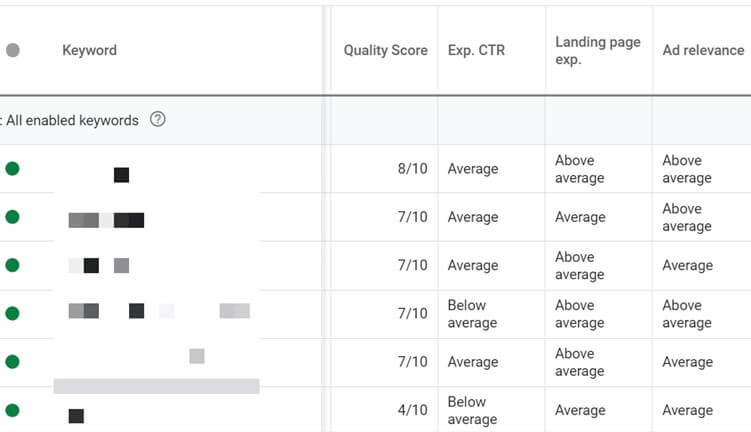Is paid search worth it for small businesses?
PPC used to be great for small businesses. It allowed them to compete with much larger players who had much larger budgets. However, every year it seems as though PPC gets more competitive with click prices increasing, and paid search generally becoming more complicated.
Google Ads makes it easy to get set up with PPC and start giving Google your money. If you don’t know what you’re doing, it can be very easy to burn through your entire budget and get very little in returns. This can be especially problematic for small businesses as they often have much smaller budgets than the big players.
A large business has more money to put into testing and learning to analyse what does well for them. If a business finds paid search advertising isn’t working for them, they can easily test a different PPC strategy.
Small businesses often don’t have this luxury. Whether this is due to budget issues or other factors, they don’t have the budget to test and learn. They need to get things right the first time around.
What is PPC?
Pay Per Click marketing is often shortened to PPC marketing. It is a form of digital marketing where the advertiser only pays when their ad is clicked.
PPC marketing allows advertisers to put their ads on search engines, third-party sites like blogs, news sites, social media platforms, mobile apps and video streaming sites, to name a few.
A PPC campaign generally requires three types of information from the marketer. Here are the types of information that is needed.
Keyword/audience criteria
The advertiser would identify the type of people that they would like to show their ads to. This can include people searching for a certain keyword or people who fit under a certain audience.
Ad copy
Depending on the campaign type, the ad copy could be text, an image, a video, or a mixture of an image and text.
Bid/budget
A maximum budget and the maximum amount that the advertiser is willing to pay for a click needs to be identified. The higher the budget, the more clicks the advertiser will be able to buy.
Once the advertiser has identified the above three criteria, their ads go into an auction system. The advertiser that bids will generally get the most exposure. This is as long as their budget is large enough.
What is Paid search?
Paid search is a type of PPC marketing. In most cases, it is the first type of marketing that advertisers utilise when delving into PPC advertising.
An advertiser usually chooses what type of searches on a search engine they want to show their ad on with paid search.
Ads will then appear on a search engine when someone searches for one of their chosen keywords. The advertiser’s ad position on the page depends on how much they bid and the quality of their paid search campaigns. But in general, the more the advertiser bids, the better their position on the page will be.

Three Benefits of Paid Search for small businesses
Before we get into how small businesses can run a profitable Paid search campaign in 2021, we need to understand the benefits to small businesses of running PPC and paid search campaigns.
Benefit one: Let PPC generate interest while you work on your business
As a small business owner, you’re likely very busy. Your time is spent growing your small business, often at lightning speed. You don’t have time to manually generate leads or get customers to shop with you.
Fortunately, paid search campaigns allow small business owners to focus on growing their business while the paid search campaigns work o generating leads and obtain sales.
Benefit two: Reach your business goals
Paid search advertising can help small businesses to meet their business goals. With many other digital marketing methods, several months are required to build up interest.
With PPC advertising, small businesses can start getting in traffic immediately. This helps small businesses to meet their goals immediately and not have to wait months to build up interest.
Benefit three: Immediate results
PPC advertising injects immediate traffic into your website. You don’t need to put in months of work building up the interest. Once you’ve created and activated your campaign, your ads will start showing immediately, and you’ll start getting traffic to your site.
The ability to get immediate traffic can be very powerful for small businesses. If your website needs work, then it will become clear in a short space of time when the traffic obtained from paid search advertising doesn’t perform well on your site.
If your customer service or general product offering needs work, then this will also become clear as you start interacting with the customers that are being brought into your site.
Small businesses often have a lot of work to do to improve their business offering. PPC can help with this by injecting in traffic data that small businesses can use to improve their website and general business offering.
Six tips to make paid search worth it for small businesses
So, is paid search worth it for small businesses? The short answer is yes, but only if you do it right. Paid search advertising gets more competitive every year. This means it’s even more important to identify the right goals and implement campaigns that will provide the highest return on spend.
Here are four Paid search advertising on Google Ads tips to help small businesses obtain a positive return on their ad spend.
Tip one: Get the free advertising coupon
Google offers free advertising credit to new advertisers. The amount offered can change, but Google usually gives £80 in free credit when the PPC advertiser spends £40 on Google Ads advertising.
You can find out how much free advertising credit Google Ads is offering by going on Google’s coupon page.
£80 in free advertising credit doesn’t sound like much. It isn’t a lot for a large business that can burn through thousands of pounds a day. However, it can mean some free credit for small businesses to test the waters and learn how to make paid advertising profitable before they start having to invest their own money.
For example, if a small business’s average click prices are £0.30, £80 will give them two hundred and sixty-six free clicks. That’s two hundred and sixty-six clicks to learn how to make their paid search campaigns profitable.
The free advertising coupon should automatically be applied to a Google Ads advertiser’s account. But if it isn’t, then you can get in touch with Google via their new advertiser support section and request it.
To check if the free advertising coupon has been applied, click on ‘Tools & Settings’, and then on ‘Promotions’ under the ‘Billing’ section.

From here you can see if any promotions have been applied. This is also where you would go in order to apply a promotion.

Tip two: Don’t bid for position one
As a smaller business competing with much larger companies, you don’t have the same budget as your larger competitors. The bigger competitors can afford to pay much higher click prices than you can. Larger businesses are always on the lookout for more traffic which means they’re more willing to test increasing bids to appear on a high position on the page.
As a smaller business, you need to have a different mindset to a larger business advertising on paid search. Rather than trying to dominate the top of the page where it is very competitive, you may be able to get a better return by targeting a lower position on the page.
For example, if you have a budget of £500 and you need to bid £2 to appear on position one, you would be able to buy 250 clicks for your budget. If you drop bids to £1, then you would appear lower down the page but you would be able to buy 500 clicks for your £500 budget.
As long as you don’t reduce your bids too low, you would be able to get more clicks by dropping your bids. Let the bigger businesses fight it out for position one. You can focus on getting traffic from the less competitive positions lower down on the page.
Tip three: Copy your competitors
The benefit of being a small business amongst larger businesses is that the larger companies have already done a lot of work to find out what works and what doesn’t.
Large businesses spend thousands of pounds on testing new ideas. This means they’ve already done a lot of the research work for you.
Search for some of your keywords and see which competitors appear on the search engine results page (SERP). Have a look at the types of messaging that they’re using and the kind of USPs they are pushing in their ads.
Click through to their site and have a look at their landing page. Look at the website’s general design, the content that is on it, and how the tactics they use to get sales or leads. You can copy a lot of this.
Tip four: Target long-tail keywords
According to Google, 15% of searches are new every day. This means that there is a lot of long-tail traffic to be picked up, which often has less competition than your head terms because everyone has already thought of bidding on your head terms.
If you target keywords with less competition, you will likely have to bid less to appear on the SERPs’ top four results. Having lower click prices means you can buy more traffic for your budget.
Tip five: Use manual bidding
Automated bidding uses Google’s machine learning capabilities to bid the right amount for each search. What’s more, it seems to get better every year. A lot of businesses have seen a performance improvement when they switch to automated bidding.
However, automated bidding has a learning phase. During this, the system is testing and learning what works well and what doesn’t. It is possible to see a poor return on your ad spend.
The amount of time a campaign is in the learning phase will depend on how much traffic the campaign is getting. If a campaign has a large budget and gets a lot of traffic, then the learning phase may be over in a few days. If the budget is small and the campaign isn’t getting a lot of traffic, it will take longer to get enough traffic to get out of the learning phase.
Smaller businesses often have smaller budgets to work with, meaning that the learning phase can take longer than they can handle.
You can use manual bidding and manually set the bids to what you think is right. If you decide to test automated bidding, prepare for your campaigns’ performance to be poor, at least for the first week.
Tip six: Work on your Quality Score
Your budget is tight, and you need to get as much out of it as possible. If you can improve your keywords’ quality score, you will bring down your click prices and get more clicks for your budget.
The amount you for a click depends on your Ad Rank. Your Ad Rank is calculated using the amount that your bid and the Quality Score of your keyword. Google uses three metrics to calculate your Quality Scores:
- Expected Clickthrough rate – The likelihood that your ad will get a click compared to other competitors in the auction.
- Landing Page Experience – The quality of your landing page. This includes having relevant content on the page and a very fast loading time. Find out more about improving your Landing Page Experience.
- Ad Relevance – How well your ad copy matches the keyword.
Each of the above metrics gets a score of either ‘Above Average’, ‘Average’, or ‘Below Average’. To find the scores of your keywords, in the keyword view, click on ‘Columns’ on the right-hand side and then on ‘Modify Columns’.
This will give you a list of all the columns that you can add to Google Ads. Under the ‘Quality Score’ subheading, select ‘Quality Score’, ‘Exp. CTR’, ‘Landing page exp.’ and ‘Ad relevance’.

You should now have all the metrics you need to see how you can go about improving the Quality Score of each of your keywords. Start by tackling all the metrics where you have a ‘Below Average’ score.

Wrapping up
Does PPC still work for small businesses? Yes, but only if you craft the right PPC advertising strategy and run high-quality, targeted PPC campaigns.
The upside is that a small business has the luxury of being able to copy much larger businesses that spend thousands on testing and improving their PPC advertising and landing pages.
Use the six tips identified in this blog post to give your small business an advantage over other small businesses when doing paid search advertising with Google Ads.